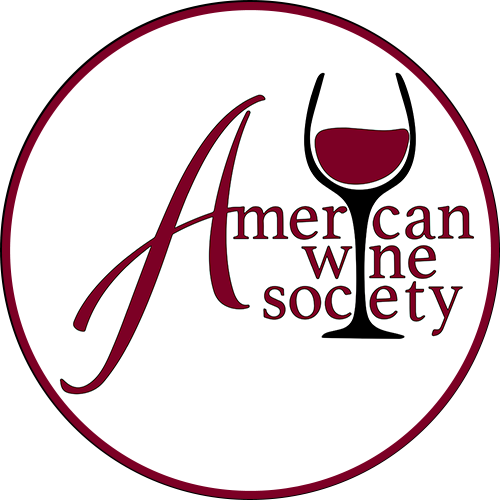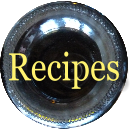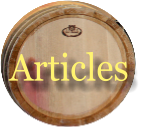
















Bill Eisberg... In The News
Article from Carroll County Times 'Weekender' (Sec. C, p. 1) September 20, 2002Drought leaves hardly any water, but festival has
plenty of wine
By Stephen Snyder, Times Staff Writer September 20, 2002 MATTHEW S. GUNBY/ STAFF PHOTO Bill Eisberg picks grapes from his half-acre vineyard on his brother's property in Westminster. When six of Bill Eisberg's homemade wines compete Sunday in the Amateur Wine Judging Competition at the Maryland Wine Festival, it won't be the first time. Eisberg has been a regular contestant at the Maryland Wine Festival, and many other amateur wine competitions, for more than a decade and he's won a variety of awards. His most precious awards sit in a display case in his living room. Medals, mostly silver and one gold, hang around empty bottles that once stored the winning entries. Behind them sits his most prized possession, a tray awarded to him for a 1992 Cabernet Sauvignon/Cabernet Franc blend, which won a gold medal in a national American Wine Society competition in 1995 in Long Island. Last year, Eisberg, who is the national president of the American Wine Society, won best in show at the Maryland Wine Festival for his Sangiovese/Cabernet Sauvignon blend, a feat he hopes to repeat this year. "It's a good acknowledgment if you get an award," Eisberg said last week from his home in Westminster. Eisberg keeps a half-acre vineyard on his brother's property a few miles away where he grows grapes for dark wines and light wines: Chardonnay, Seyval, Cabernet, Vidal, Sangiovese, Chardonell. He started with a small, six-row vineyard in the late 1980s and then expanded to nine more rows and approximately 320 vines, which he selects based on their hardiness and ability to grow in Maryland's cool climate. Eisberg inherited his interest in wine from his father, who also made wine on the same piece of land. But his father never had a vineyard. His wines came from natural ingredients: black cherries, concord grapes, dandelions. In the late '80s, Eisberg joined the Carroll County Chapter of the American Wine Society, where he met other wine enthusiasts like Jack and Emily Johnston, who run the annual Amateur Wine Judging Competition. It was then that he made his first wine. The hobby grew from there. "It's like a hobby out of control in some ways," said Eisberg looking over the rows and rows of grapes. He picks the grapes and puts them in lugs, blue plastic containers used to "lug" the fruit around. He puts the picked grapes into a crusher-destemmer, a box controlled by a series of gears that does just what it says, and then a wine press, which creates the juice. Eisberg then puts the juice into 5-gallon carboys - glass jugs - along with the correct amount of wine yeast so the juice will ferment. Eisberg then ages the wine in oak barrels in his basement. White wines usually only take a year to finish; red wines take longer, sometimes three or four years. "I hold my reds," said Eisberg. "I don't rush them." Eisberg's winemaking endeavor takes up about half of his basement. Empty bottles from past purchases, which Eisberg uses to bottle his wines, sit in boxes stacked high against the wall. Empty carboys litter the floor. Two wine racks, one for Eisberg's wines and one for commercial wines, sit next to the table where Eisberg does his bottling. Eisberg makes a lot of wine, but still loves drinking store-bought wines for different tastes and flavors. Despite his discriminating taste, Eisberg doesn't collect any high-priced wines, partly because he doesn't have the money for such a luxury and partly because of his egalitarian view of winemaking. "I think you can find really decent wines inexpensively," said Eisberg. Last Friday, Eisberg was getting ready to bottle two wines that had been resting in their oak barrels, a Rose and a 2001 Cabernet Franc, both of which he plans to enter in Sunday's competition. The quality of a wine depends a lot on the quality of the grapes that went into it and the care taken in making it. Eisberg is careful not to let too much air into his carboys or oak barrels to prevent oxidation. Once a wine is finished, he might blend it with other wines to create different flavors or enter it as is. He often uses competitions as guides to see if he should let it age more or if he should blend it with something else. Eisberg regularly enters his wines in the Maryland State Fair, at a large AWS competition in Pittsburgh and at the AWS annual national convention. The past few years have been good for growing grapes and therefore good for wine makers. Dry weather is actually beneficial for grapes, said Eisberg, by reducing mildew problems. "I think you're going to see a lot of very good wines come out of the last few years," he said. Eisberg thinks that his Cabernet Franc could be the best wine he's ever made, though that'll be up to the judges to decide. Eisberg is also a certified judge for the AWS and helps judge the Maryland Wine Festival competition, though he's obviously not allowed to judge his own wines. In his basement, Eisberg used an oversized eyedropper to draw out some of the Cabernet Franc from the barrel and pour it into a wineglass. He drank it slowly, thoughtfully. "Depending on how it does Sunday, I might hold it back a year or two," he said. As for the award-worthiness of his wines this year, Eisberg seemed hopeful but guarded, like a proud parent trying to not put too much pressure on his children. He obviously thought they were good, particularly the Cabernet Franc, but he wanted to see what the judges will say first. Upstairs, his one gold medal wine sat on the bookshelf. "Whether it'll do as well as that, I don't know," he said. "We'll see on Sunday." Reach staff writer Stephen Snyder at 410-857-7862 or ssnyder@lcniofmd.com.Weekend of wine
The Maryland Wine Festival opens from 10 a.m. to 6 p.m. Saturday and noon to 6 p.m. Sunday at the Carroll County Farm Museum at 500 S. Center St. in Westminster. The festival showcases wines from 11 Maryland wineries and offers continuous entertainment, educational seminars, demonstrations, amateur wine judging and lots of food. Admission to the festival is $15 and includes a logo-engraved wineglass, 10 tickets for samples of Maryland wines and free entrance to the Wine Education Seminar, which teaches the public what to look for when choosing a wine. Those under 21 are admitted free with a paying adult. The entertainment schedule is as follows: Saturday 11-11:45 a.m. - Chris Vadala, Jazz Quintet Noon-12:45 p.m. - Chris Vadala, Jazz Quintet 1-1:45 p.m. - Big Cam and the Lifters, Oldies Rock 'n' Roll 1:45 p.m. - Governor's Cup Trophy Awarded 2-2:45 p.m. - Big Cam and the Lifters, Oldies Rock 'n' Roll 3-3:45 p.m. - Mike Dugan and the Blues Mission Band, Blues 4-4:45 p.m. - Mike Dugan and the Blues Mission Band, Blues 5-6 p.m. - Bourbon Street Ramblers, Dixieland Sunday Noon-12:45 p.m. - Krewe of Renagades, Mardi Gras "Hip Shakin" Jazz 1-1:45 p.m. - Carl Filipiak, Jazz 1:45 p.m. - Governor's Cup Trophy Awarded 2-2:45 p.m. - Carl Filipiak, Jazz 3-3:45 p.m. - Crawdaddies, Zydeco-Swing-Rock 'n' Roll 4-4:45 p.m. - Mike Dugan and the Blues Mission Band, Blues 5-6 p.m. - Bourbon Street Ramblers, Dixieland The festival also features more than 60 craft vendors and more than 30 food vendors. The Carroll County Artists Guild hosts an art show and sale both days. The festival is co-hosted by the Farm Museum, the Maryland Grape Growers Association, the Association of Maryland Wineries and the American Wine Society. For more information, call the Carroll County Farm Museum at 410-848-7775 or 410-876-2667, or visit the Web site at ccgov.carr.org/farm. ©Carroll County Online 2002


Promoting appreciation of wine through education © 2024












